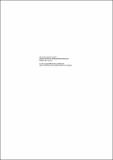| dc.description.abstract | The long history of evolution of the Law of the Sea through State practice as well as codification and progressive development, culminated in the Law of the Sea Convention signed, under auspices of the United Nations, at Montego Bay, Jamaica, on 10 December 19 82. One of the principal features of the Convention is the area of the Sea which it brings under the two legal regimes of the Exclusive Economic Zone and the Continental Shelf. Under these two regimes considerable areas of the Sea are brought under national jurisdiction for purposes of exploration, control, conservation and exploitation of marine natural resources. The regimes also define the zones with the highest probability of the attractive natural resources, notably fisheries and hydro-carbon.
It is estimated, for instance that Kenya and Tanzania would each acquire a new zone of between 20,000 and 200,000 nautical square miles over which they have exclusive jurisdiction and sovereign rights for purposes of exploration, exploitation and conservation of natural resources.
This paper, which focuses only on hydro-carbon, argues that in order for the respective coastal states, such as Kenya to benefit in a meaningful way, from the natural resources newly brought under its jurisdiction, it must acquire requisite technology and manpower to explore, exploit, transport, process and market the hydro-carbon and its other products.
Accordingly, the paper outlines an analytic profile of basic and broad management needs. Thereby, it suggests the specific training needs required to meet the needs suggested by the management profile. In conclusion, the paper suggests some broad frameworks for developing manpower to meet these development needs. | en_GB |


